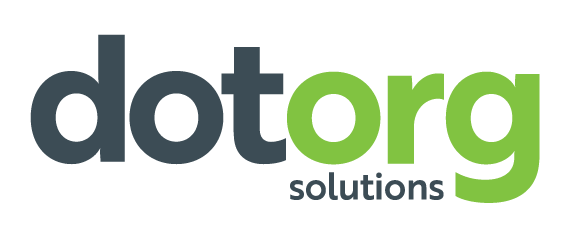Creating healthy coworker relationships (and why it’s important)
Coworker relationships can be hard to navigate. Healthy relationships at work can sometimes make or break your career. After all, you probably spend more time with your coworkers than some of your family. So, don’t you want those relationships to be effective? Having healthy coworker relationships can make your work life easier, make your work more efficient and, dare I say, fun. I have been blessed to have made lifelong friends at every job I’ve had. I’ve also had fantastic working relationships with people and never spoke to them outside of the office. I’m not saying you have to be work besties with everyone on your team, but one thing we’ve all learned from every group project in high school and college is that the groups that did well worked together and used their strengths to help the team (or had one person do the whole thing, but that’s not the point of this blog).
Be a good coworker
The first thing you can do to create great relationships with your coworkers is be a good coworker. Make a list of the things you want your coworkers to be and emulate that. My list looks something like this:
Friendly
For me, building healthy relationships (especially with direct reports) involves getting to know them as a person first and finding common ground. It might be music, TV shows, activities, etc. If you can find something to talk about, it can help build rapport. And trust me, you can find something to talk about with everyone, even if it’s a common dislike of the cafeteria tuna salad.
Trustworthy and honest
If I need to you to do something, I have to be able to trust that you will do it and I expect you to do the same with me. I also need you to talk to me if you aren’t sure what needs done, have a better way to do it, think someone else is better suited for the task, etc.
Communicative
Almost all workplace issues derive from a lack of communication or miscommunication. In the world of email and Teams messages, things like tone, urgency and intent become murky and lead to people thinking “that email seemed a little snarky,” when that wasn’t the intention. If you feel like a project is going off the rails, leave the emails behind and set up a call to touch base and voice your concerns using your actual voice.
Helpful
We all need help. It can be lending a hand on a huge project or offering to water plants on your desk while you are gone. The more willing you are to help others, the more willing they are going to be to help you. This can be especially true for new coworkers. The onboarding process can never be all-encompassing and it’s important to remember that and lend a hand whenever possible.
Appreciative
Say thank you. This is such a simple thing that we all forget to do sometimes. Say thank you for little things and big things. Call out a coworker during staff meeting for something they did to help you. If you’re a manager, take your staff to lunch every once in a while or order in cookies. According to a study by Cicero, employees receiving strong recognition are much more likely to generate innovations and increased efficiency at work. Employees report that recognition is more effective at increasing their engagement, performance and innovation than an additional bonus of five percent of their salary. Overall, performance recognition is a strong driver of employee engagement, which is a key objective of high-performing teams.
Empathetic and patient
I put these together because I think one leads to the other. My priorities are not necessarily your priorities. Working with others means sometimes people aren’t going to do what you want them to when you want them to do it. And they might have an excellent reason, like the internet went down at their house or your boss gave them a project that takes priority. Have empathy that we all have lives outside of work that you may not know anything about and be patient that they will do what is expected of them when they can. And, this leads back to being trustworthy and honest. Once you’ve built a healthy relationship with your coworkers, small issues can be fixed quickly and easily before they turn in to a bigger problem.
Learn about work styles
High-functioning teams work well together because people are different. You need a doer, a details person, a supporter and an idea generator. If you have only doers or only idea generators, you won’t get very far. Some people’s work styles may be pretty obvious, but sometimes it takes a little more digging to understand how people function best in a work environment. Tests like Strengthsfinder, DiSC or even the Enneagram can be really helpful to see where your team is lacking or how your team members work best.
Each of these tests gives you a different take on personality traits, communication styles and motivations and can provide a clearer picture about your coworkers’ preferences. Once we understand how people prefer to work, it makes it much easier to work well with them. For instance, an idea person may need extra time to answer emails and would not appreciate being brought into a meeting last minute where they are expected to answer questions. They need time to think about their answers and work through the project in their head before they can take an action. However, the doer wants to move forward and check things off the list as fast as they can. These two teammates need to work together to move a project forward while respecting the other person’s process. No style is perfect and a mix of styles is needed to create balance and efficiencies. Imagine the office space full of Enneagram 8s (The Challenger) and no Enneagram 9s (The Peacemaker.) You’ll have a lot of strong personalities with no one to mediate.
If your organization does not currently use any of these tools, I encourage you to spend some time researching them and choosing one for your team to take. You might find you have an entire team of strategic thinkers and no executors, which can lead to a lot of ideas without anything getting done day to day. Or, you may have a coworker in charge of the details who really is better suited to oversee and encourage each person’s individual contributions. These tests can help you better understand your team members and how each person can be set up for success.
Why is any of this important?
According to Manila Recruitment, the number five reason people leave a job is because of coworker relationships. Teams that have a solid culture and good working relationships are happier, more productive, more efficient and innovative. What does that mean for you? When the team is more productive, your individual productivity increases. If your work product improves, you are more likely to move up, receive a raise or be given new and interesting assignments. You might be surprised how quickly your team’s morale and overall happiness increases when they are part of a high-functioning team, leading to healthier employees and a higher retention rate.
Good coworker relationships can also lead to new skills and knowledge. Highly successful teams don’t see each member as competition. Therefore, they share knowledge and do everything they can to ensure each person is learning and growing. These relationships can help you throughout your entire career, whether you stay at the same job or not.
When thinking about your coworker relationships, go back to what you learned in kindergarten — treat others the way you want to be treated. Then, pay attention to work styles, adjust accordingly and adapt to ensure you are utilizing everyone’s strengths. By doing these three things, you can start building healthy relationships with your coworkers and making your company stronger.
Like what you read? Subscribe to our weekly blog and it will be delivered directly to your inbox!
Sources:

Sara Lundenberger - VP, Nonprofit services & operations
Although Sara never meant to be a fundraiser, her first post-college job was as a development assistant and she never looked back. She loves working with our nonprofit clients because they know what they want to achieve, but they may not always know how to get there. She integrates fundraising best practices with an organization’s capacity to create processes and plans that are usable. Sara truly believes nonprofits make the world a better place. From her previous positions to the fantastic clients she works with now, she learns a little more about the world we live in every day. We are all touched by a nonprofit organization every day, whether we know it or not.

